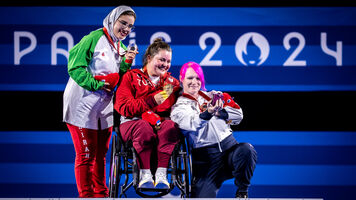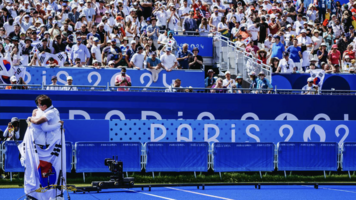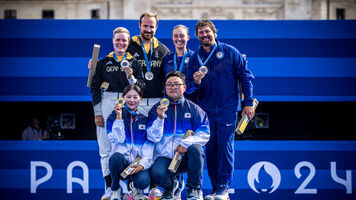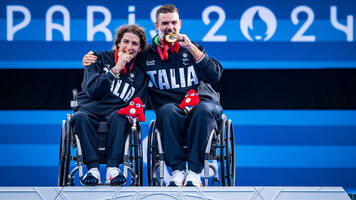Roux returns to South Africa with more ‘knowledge’ after Olympics
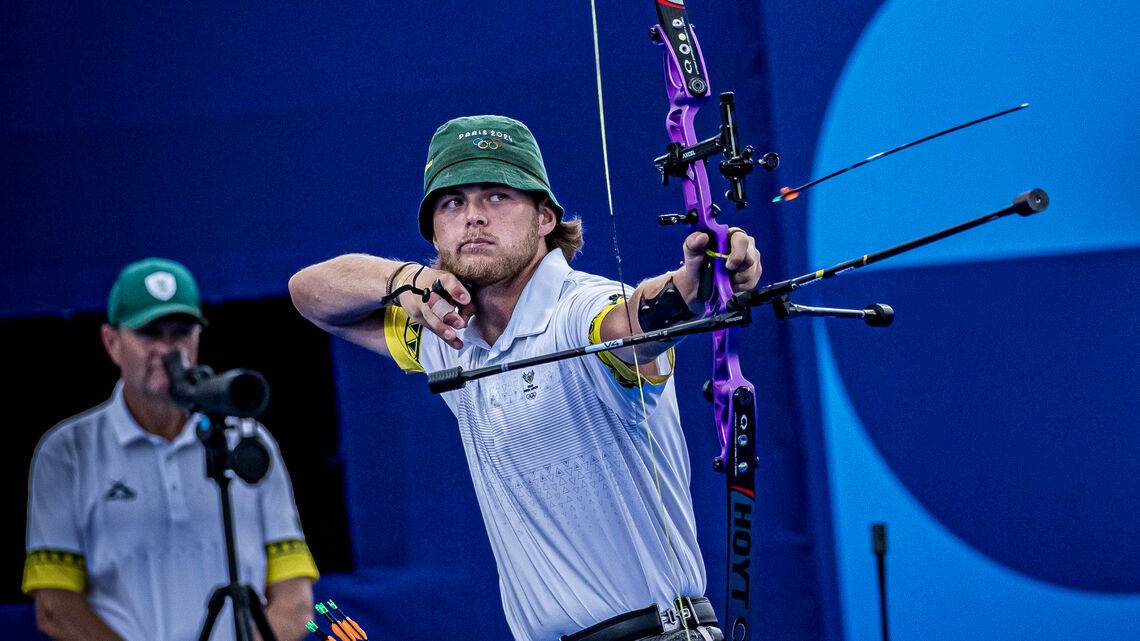
ATHLETE SPOTLIGHT is presented by WIAWIS.
When it comes to success on the world stage, African nations are far behind compared to others.
In Paris 2024, none of the six archers from the continent that qualified for the Games, male or female, went past the first round.
No team or individual from Africa has gone on to win an Olympic medal with only eight archery World Championship medals returning back to the continent, compound included, all by way of one nation, South Africa.
Three of those won by compound couple Patrick, 2015 mixed team bronze and 2013 men’s team silver medallist, and Gerda Roux, 2013 women’s individual bronze medallist.
They are the parents of one Wian Roux, South Africa’s only representative at Les Invalides who was eliminated by men’s team gold medallist Kim Je Deok in straight ends, 6-0.
“That was amazing. I mean the experience is insane,” said a starstruck Roux straight after his elimination last Thursday.
“I’ve been to the Youth Olympic Games but it’s not the same. I wasn’t even nervous, it’s just the magnitude I was just in awe.”
“It’s just awesome being here, having the opportunity to be an Olympian, to compete against the best in the world, being one of the best in the world, not just competing against.”
A four-year cycle building up to this point but in just nine arrows, the 21-year-old’s adventure in Paris ended.
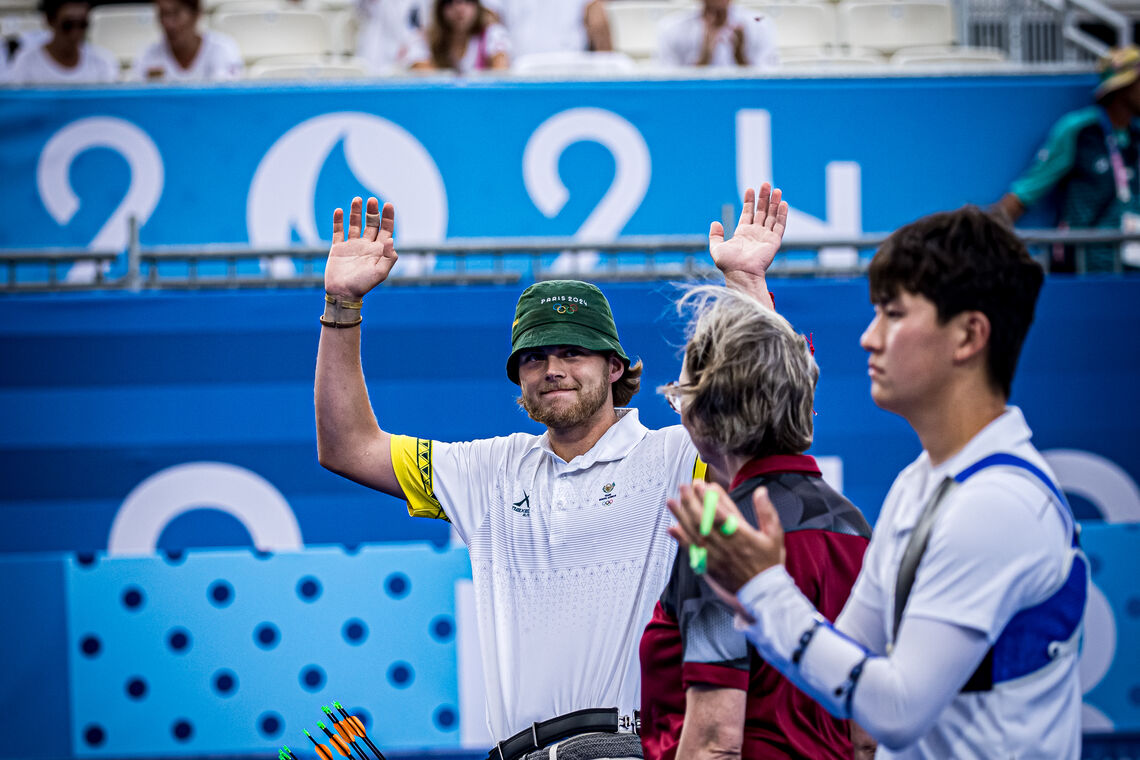
Roux still felt ‘proud’ though despite his brief appearance at the Games and he has the right to be, being the first South African Olympian male archer since Calvin Hartley in Beijing 2008. The last woman was Karen Hultzer in London 2012.
Roux aims for his Olympic feature though to not be a long-lost relic but the beginning of a legacy that will hopefully attract more South African archers to go down the Olympic route.
“I can go now and share with them, and just tell them how amazing it is,” said the 2022 African Champion. “That might motivate some people to work harder to get here because we’ve got a lot of archers, I just don’t think the overall eagerness to get better and realise what the potential is of shooting.”
“A bunch of them do it for fun. I think once they realise what South African archery can go to, then I think they will start elevating.”
Roux feels he is ‘lucky’ to be able to now call himself an Olympian. It is fair to say archery was always going to be a natural progression career for him coming from a family of international archers albeit compound.
Indeed, he started compound at 11 years old before transitioning to recurve where he has gone on to win three African championship medals in individual (gold) and men’s team (one gold, one bronze).
It may not be a sport that involves cardiovascular exercise like other popular sports in South Africa such as rugby, but Roux credits his parents for showing him how the same athletic, sporting glory and adrenaline can still be felt in archery.
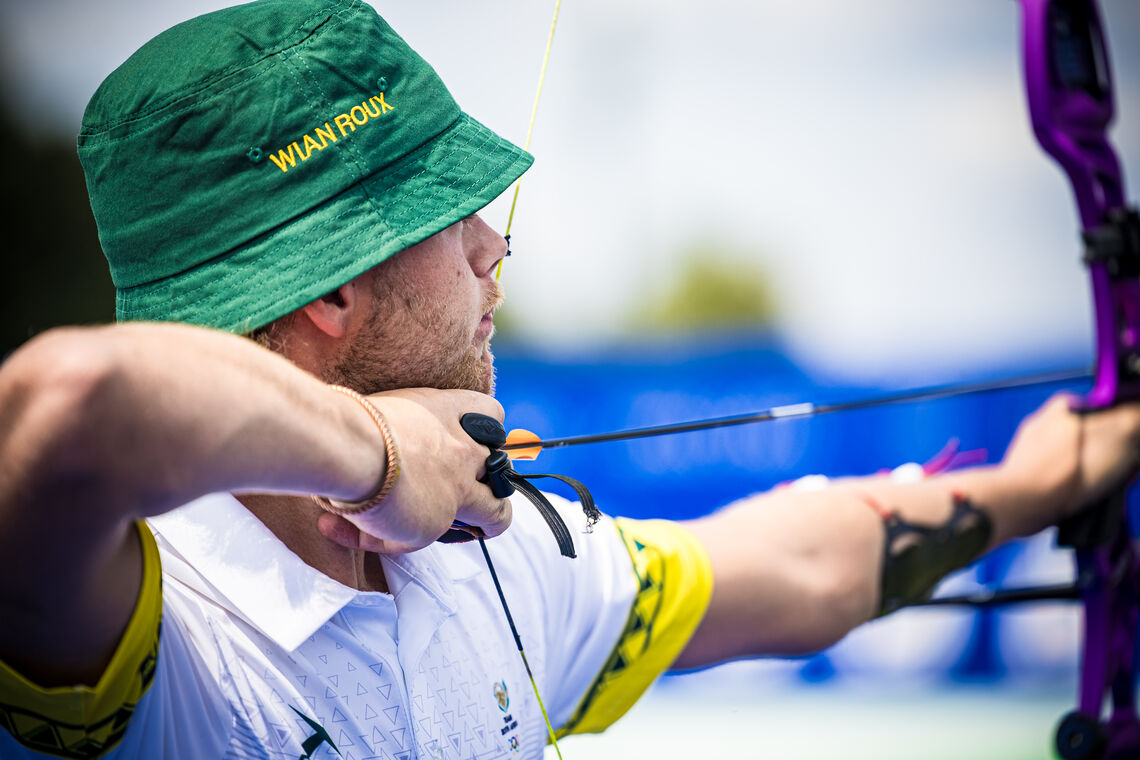
“They told me they got me into that image of this is what you can do with it,” said Roux on his parents’ influence. “A lot of people don’t have it, so I think the moment I get home, I can get to tell them, ‘This is this is what you can do with it.
"You can one day reach the same heights’, there’s no reason some of the people back home can’t. I think a lot of them just don’t have that motivation and the knowledge yet to do it, knowledge regarding what’s out there for sure.”
Roux now has that Olympic pedigree, the feeling of 16,000 eyeballs – or 8000 fans – pinpointed on him during every shot, the adulation, the ‘knowledge’ he calls it of archery’s greatest show.
He can now return to his country with this invaluable exposure. The gleaming South African had to stop midway through the interview with his phone “absolutely buzzing”.
No doubt, he will be seen as a hero in South African archery, as will Israel Madaye of Chad, Youssof Tolba of Egypt and on the women’s side, Egypt’s Jana Ali, Tunisia’s Rihab Elwalid and Guinea’s Fatoumata Sylla will do in their respective countries.
The sport is still developing in Africa. These six including Roux, now have the responsibility of not only making sure they qualify themselves for LA28 but inspiring the next generation of African archers, sharing their newfound Olympic knowledge.



